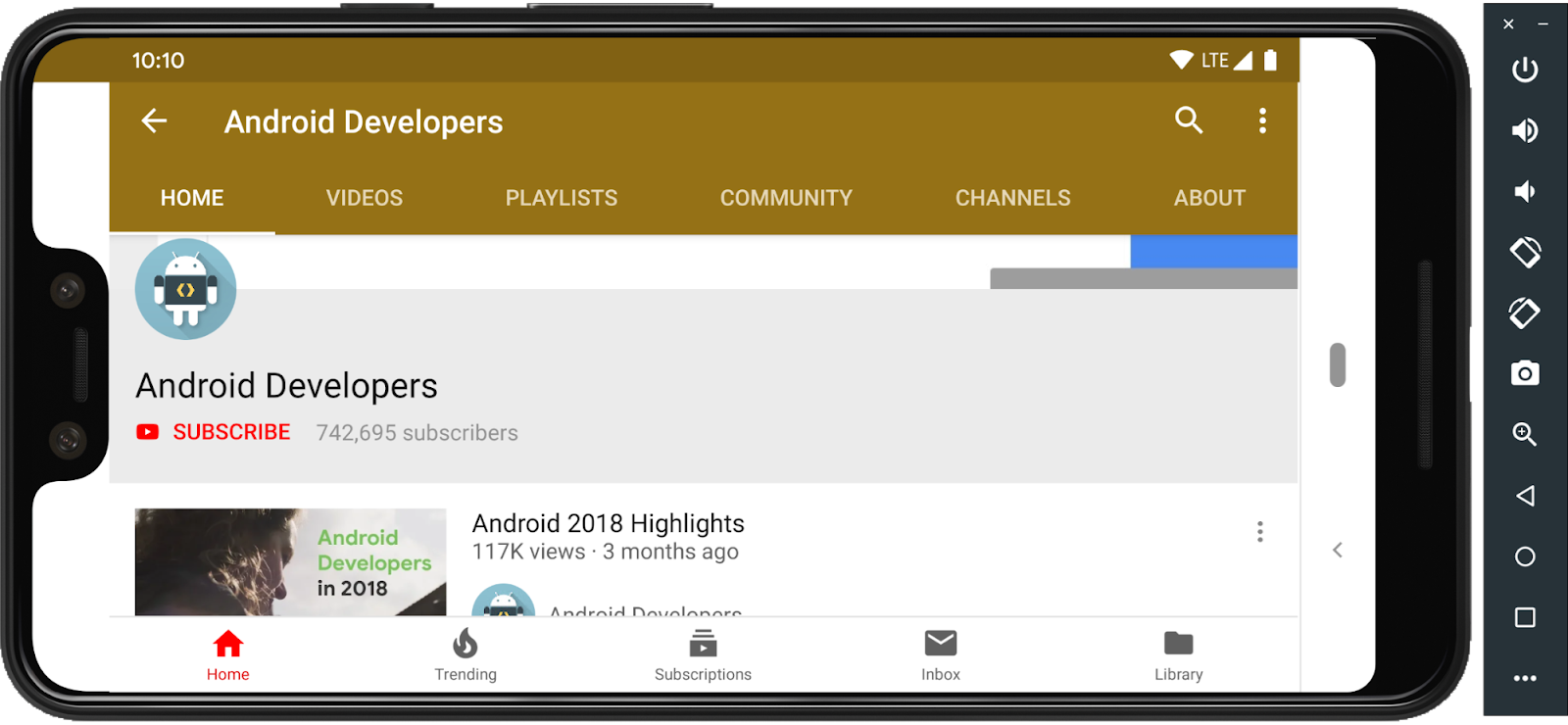testsetset
Google today launched the fourth Android Q beta with final Android Q APIs and the official SDK. If you’re a developer, this is your fourth Android Q preview, and you can start testing your apps against this release by downloading it from developer.android.com/preview.
The preview includes system images for the Pixel, Pixel XL, Pixel 2, Pixel 2 XL, Pixel 3, Pixel 3 XL, Pixel 3a, Pixel 3a XL, and the official Android Emulator. If you’re already enrolled in the beta program, you’ll automatically get the update to Beta 4. Like Beta 3, Google is also bringing Android Q Beta 4 to third-party phones “over the coming weeks.”
In addition to the Pixels, here are the supported third-party devices (full list): Asus ZenFone 5Z, Essential Phone, Huawei Mate 20 Pro, LGE G8, Nokia 8.1, OnePlus 6T, Oppo Reno, Realme 3 Pro, Sony Xperia XZ3, Tecno Spark 3 Pro, Vivo X27, Vivo Nex S, Vivo Nex A, Xiaomi Mi 9, and Xiaomi Mi Mix 3 5G.
Google launched Android Q Beta 1 in March, Android Q Beta 2 in April, and Android Q Beta 3 in May. Beta 1 brought additional privacy and security features, enhancements for foldables, new connectivity APIs, new media codecs and camera capabilities, NNAPI extensions, Vulkan 1.1 support, and faster app startup. Beta 2 added multitasking Bubbles, a foldables emulator, and a new MicrophoneDirection API.
June 5th: The AI Audit in NYC
Join us next week in NYC to engage with top executive leaders, delving into strategies for auditing AI models to ensure fairness, optimal performance, and ethical compliance across diverse organizations. Secure your attendance for this exclusive invite-only event.
Beta 3 was the biggest by far though, because it launched at I/O 2019. Beta 3 brought 5G support, foldable improvements, more privacy enhancements (when apps can get location, restricted background launching, tracking prevention), biometrics improvements, TLS 1.3, suggested actions in notifications, Smart Reply in notifications, Live Caption, Focus Mode, Dark Theme, gestural navigation, and Project Mainline.
Beta 4 updates
Beta 4 doesn’t really bring any new features — it’s more about finalizing what was already added. Beta 4 includes the final Android Q developer APIs (API level 29), the official API 29 SDK, and updated build tools for Android Studio. In other words, “everything you need to test your apps for compatibility with Android Q and build with Android Q features and APIs.” If you’re a developer, you’ll want to download Android Studio, configure your environment, and check the release notes.

With Beta 4, Google is also opening publishing on Google Play to apps that are compiled against, or optionally targeting, API 29. You can thus now push updates to users through Google Play to test your app’s compatibility, including on devices running Android Q Beta 4.
To get started, install your current app from Google Play onto a device or emulator running Beta 4, work through the user flows, and make sure it handles the Android Q behavior changes. If you find issues, fix them in the current app without changing your targeting level (migration guide, privacy checklist). When you’re done, update your app’s targetSdkVersion to ‘Q’.
Beta schedule
Beta 4 has a slightly different goal than the first three: Get developers to test for compatibility and give feedback. To help Google keep the betas coming, you can file platform issues, app compatibility issues, and third-party SDK issues.

Last year, there were five developer previews (four betas). This year, Google is planning six betas in total. Four betas down, two to go. Here’s the preview schedule:
- March: Beta 1 (initial release, beta)
- April: Beta 2 (incremental update, beta)
- May: Beta 3 (incremental update, beta)
- June: Beta 4 (final APIs and official SDK, Play publishing, beta)
- Beta 5 (release candidate for testing)
- Beta 6 (release candidate for final testing)
- Q3: Final release to AOSP and ecosystem
Google is asking developers to make their apps compatible with Android Q so that their users can expect a seamless transition when they upgrade. The company specifically calls out system-suggested replies and actions in notifications, optimizing for foldables, supporting gestural navigation, Dark Theme, BiometricPrompt API, and network connection APIs. As for media, there’s dynamic depth format in the camera, audio playback capture, AV1 for video streaming, HDR10+ for high dynamic range video, Opus encoding, and the native MIDI API.
The final Android Q release will arrive “in the coming months” (likely August).
Update on June 6: Google has temporarily paused the Android Q Beta 4 update. “We’re aware of an issue with Android Q Beta 4 related to installing updates,” the company said. “We’ve temporarily paused Beta 4 OTA updates to all Pixel devices as we investigate the issue. We apologize for any inconvenience, and will provide an update once the issue is resolved.”
Update on June 11: Google has resumed the Android Q Beta 4 update.

